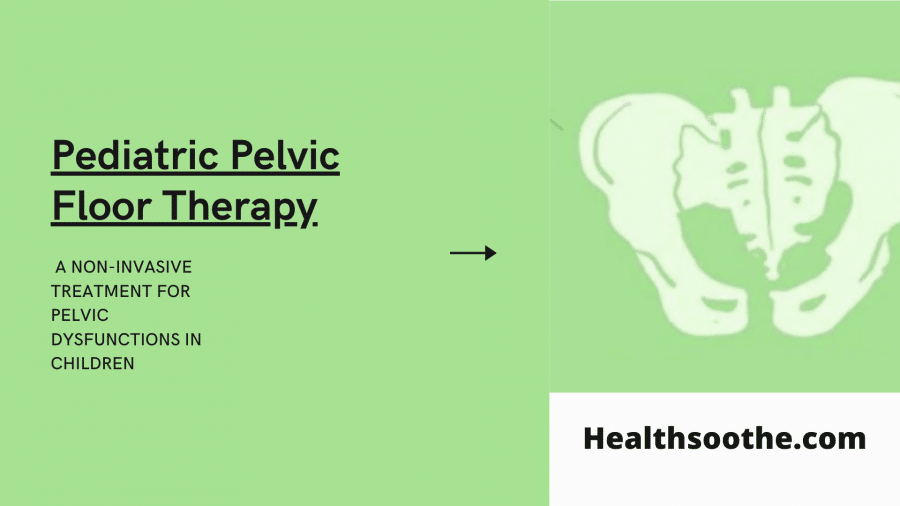Sometimes, your pelvic floor muscles can become weak or dysfunctional. In other cases, they may cause you pain or discomfort. Numerous reasons can lead to such outcomes. However, pelvic floor physiotherapy is the best way to treat these issues. This therapy can help relieve the effects of a weakened pelvic floor by relaxing and strengthening your pelvic muscles.
Such treatment will not only help improve the healthy function of your pelvic floor, but it will also typically restore your mobility and movement quite significantly. Pelvic floor problems can lead to all kinds of conditions such as endometriosis, vaginismus, interstitial cystitis, fecal incontinence, and urinary incontinence. Fortunately, pelvic floor therapy can help treat all of these conditions by correcting their root cause.
Urinary incontinence is one of the most common conditions people seek treatment for through pelvic floor physiotherapy. If you frequently leak urine accidentally, you probably suffer from urinary incontinence. Problems with bladder control can be embarrassing, uncomfortable, and inconvenient, so why suffer through urinary incontinence when pelvic floor therapy could remove such worries from your life?
Different Types of Urinary Incontinence
Although all instances of urinary incontinence are based around the same general issue, there are a few different types of urinary incontinence you can suffer from.
Stress incontinence causes urine to leak from your bladder whenever pressure is exerted on it. That pressure may be caused when you cough, sneeze, laugh, exercise, or lift heavy things.
Urge incontinence refers to sudden intense urges that you have to urinate, which typically leads to involuntary urination. Urge incontinence may affect you even more frequently at night, thus causing disrupted sleep.
If you have a bladder that does not empty completely when you urinate, you may experience overflow incontinence. Overflow incontinence usually causes you to experience frequent leaking or dripping urine throughout the day.
Total incontinence is when your bladder is unable to store urine at all, so it passes large amounts of urine constantly or occasionally with some leaking in between.
Functional incontinence has less to do with your bladder and more to do with other physical or mental impairments you may struggle with. It may cause you to frequently have difficulty getting to a bathroom in time when you need to urinate.
It is also possible to suffer from more than one of these conditions, which would mean you have mixed incontinence.
What are the Symptoms and Causes of Urinary Incontinence?
Major Symptoms of Urinary Incontinence
The most common symptom of urinary incontinence is involuntary urine leakage. Depending on the type of urinary incontinence and the intensity of your condition, this may be triggered by various situations, such as coughing or sneezing and may occur at varying frequencies.
Your bladder may also be more active than most people. This may be especially true when you suffer from urge incontinence. Your urge to urinate may be triggered by anything from the sound of running water to sexual intercourse.
Common Causes of Urinary Incontinence
There are various causes behind urinary incontinence. Sometimes, the source of this issue may be your everyday habits, whereas other times, it can stem from underlying medical conditions or physical problems. One potential cause of urinary incontinence may be depression or anxiety. If you struggle with a severe case of either depression or anxiety, it can increase your chances of experiencing bladder issues.
Another common factor contributing to urinary incontinence is obesity. If you are obese, extra weight could be putting pressure on your bladder and its surrounding muscles. Over time, this weakens the muscles, which increases your likelihood of experiencing urinary incontinence symptoms.
Age can be a factor since the aging of your bladder muscles can impact its capacity to store urine. You may also experience more frequent involuntary bladder contractions as you age.
If you are a heavy smoker, that too could irritate your bladder, triggering urinary incontinence symptoms or worsening any existing symptoms. If your smoking habit has led to the development of a chronic cough, this can also put significant pressure on your pelvic muscles, thus causing them to weaken.
How Pelvic Floor Physiotherapy Treats Urinary Incontinence
This treatment will help you learn to strengthen and relax your pelvic muscles in order to improve their functionality. Such therapy will teach you how to sense the movement of your pelvic floor muscles and control these movements. The approach pelvic floor therapists use also involves designing a specialized exercise program based on your individual needs.
Completing these exercises will aid in decreasing your sudden urges to urinate, and any pelvic pain or discomfort you may be experiencing will also be lessened. Working with a physiotherapist to strengthen and repair your pelvic muscles will allow you to gain control over your urinary incontinence symptoms, so you do not have to get your pelvic floor surgically repaired.
Put an End to Your Urinary Incontinence With Pelvic Floor Physiotherapy
Pelvic floor physiotherapy helps patients with numerous types of pelvic floor disorders, but it is especially useful in the treatment of urinary incontinence. If you suffer from one of the many types of urinary incontinence, it may be a significant cause of stress and discomfort in your life. It is frustrating when you do not have control over your own bladder. Varying activities, movements, and actions could lead to involuntary urination.
Although there are various potential causes for urinary incontinence (ranging from depression to old age to obesity), weakened pelvic floor muscles are the root problem at the heart of most urinary incontinence. Fortunately, no matter what the cause of your urinary incontinence issues may be, pelvic floor physiotherapy can help. By strengthening your pelvic muscles and training them in specific ways, this treatment can allow you to regain control over your body, so you can get back to your normal routine worry-free.


